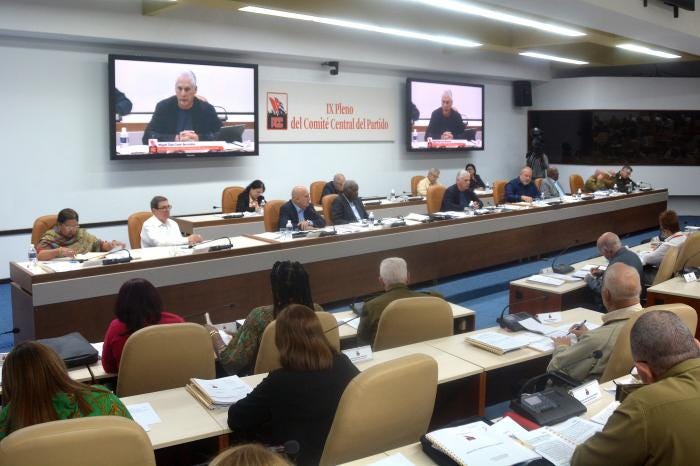The Ninth Plenary of the Central Committee of the Communist Party of Cuba was held on December 12-13, 2024. The event was covered on Cuban television by means of selected videos of the proceedings for three hours. And there were numerous articles in the daily Granma, the Official Organ of the Central Committee of the Communist Party of Cuba.
The Economic Plan
There can be no reasonable doubt that the Party and the government have a comprehensive and scientifically informed plan to respond to the economic and social crisis provoked by the intensification of the US blockade since 2019. The question is whether the Party and the government have sufficient backing by the people to make the plan a reality. To be sure, no alternative plan has been put forth, and none can be imagined, other than the recipes of neoliberal capitalism and/or surrender to U.S. neocolonial domination, for which there is virtually no support among the…



